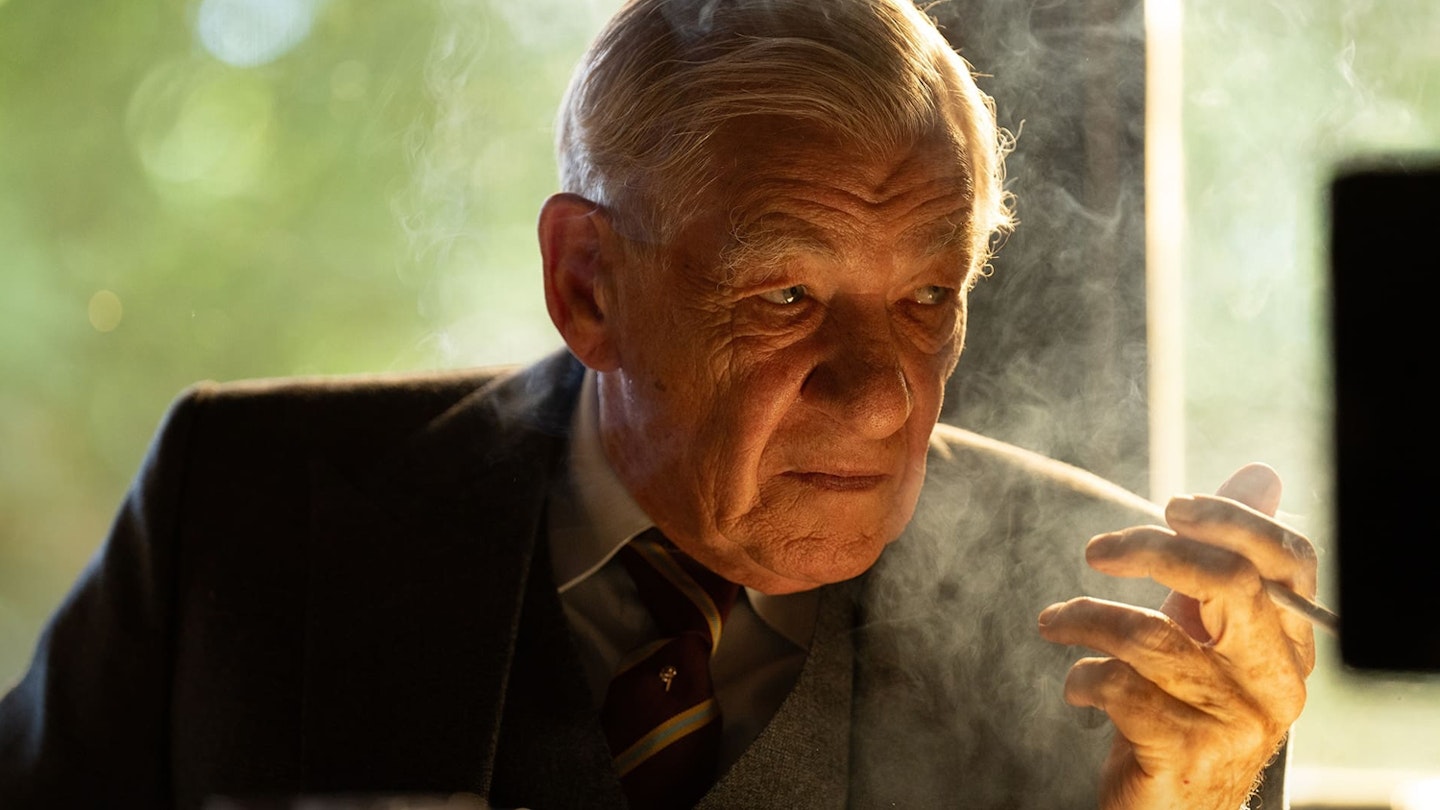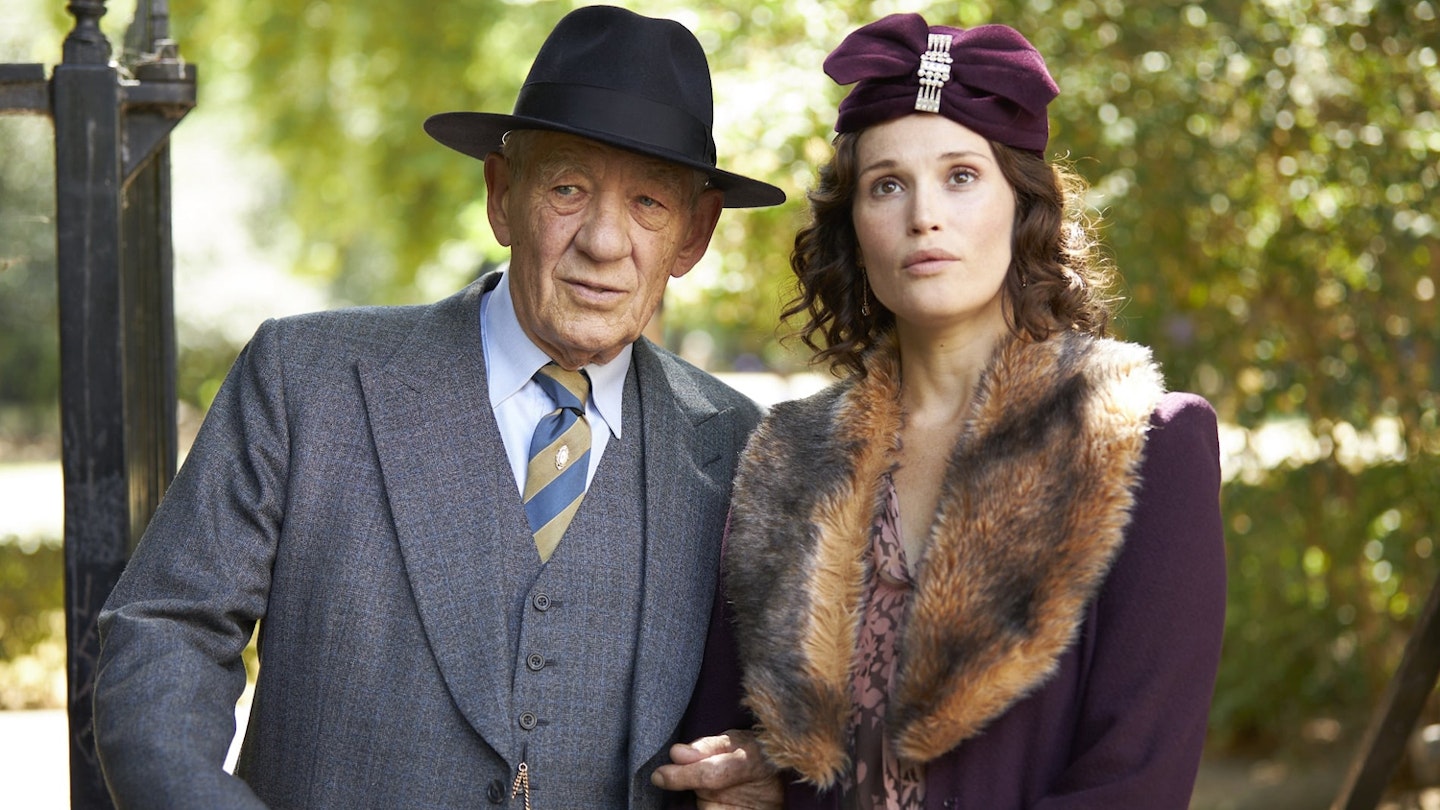This is an odd beast. Loosely based (very loosely) on a book by film critic Anthony Quinn, it’s the story of a theatre critic whose venomous writing is the least unpleasant thing about him. It refers lightly to the threat of fascism in 1930s Britain, the persecution of LGBTQ+ people and people of colour, and the perennial quest of newspaper owners to cut costs and rein in their staff. But it doesn’t quite focus on anything beyond its title character, and a hasty (and reportedly reshot) ending drops any big ideas in favour of a more conventional denouement.

The plot has endless elements that take ages to knit together. Ian McKellen is theatre critic Jimmy Erskine, who strides into theatres in a tuxedo, casually tossing his evening scarf and overcoat to the attendant, then writes a scathing review of whatever has offended him that night, with loyal secretary Tom (Alfred Enoch) at hand to offer typing assistance. Nina Land (Gemma Arterton) is the actor desperate for a good word from Jimmy, whom she idolises, while Lesley Manville plays her worried mother. Meanwhile, Viscount Brooke (Mark Strong) is looking for expenses to cut at the paper he has just inherited from his father, and Jimmy’s long lunches and mean reviews of Nina — Brooke’s secret crush — put him in the firing line. But it won’t be easy to get rid of the conniving critic.
Outside of Erskine’s spry scheming it often feels scattershot.
McKellen’s Erskine is a nasty piece of work: arrogant, entitled, frequently drunk, lavishly bitter and entirely solipsistic. But he is not a one-note bad guy, because the film points out that the gay Erskine has been forced into this half-life of hidden desires and covert meetings, something that is sensitively played by McKellen. Erskine also cares, sincerely it seems, for the theatre, so that his vicious reviews are not merely the result of fury at a cruel world but also in defence of the art he loves. Still, whatever his lofty ideals, they are forgotten as he fights to hold onto his job and take down his enemies, and damn anyone caught in the middle. He’s an interesting anti-hero, even if modern critics will look at the splendour of his Art Deco apartment and lavish club lunches with something like despair.
The film looks stylish and boasts a great cast, but outside of Erskine’s spry scheming it often feels scattershot. Having introduced lots of interesting ideas about prejudice and fascism, the film forgets them again, abandoning well-established characters to clichéd or under-explained fates. It still offers a fun McKellen performance, but it won’t go down as a critical favourite.
